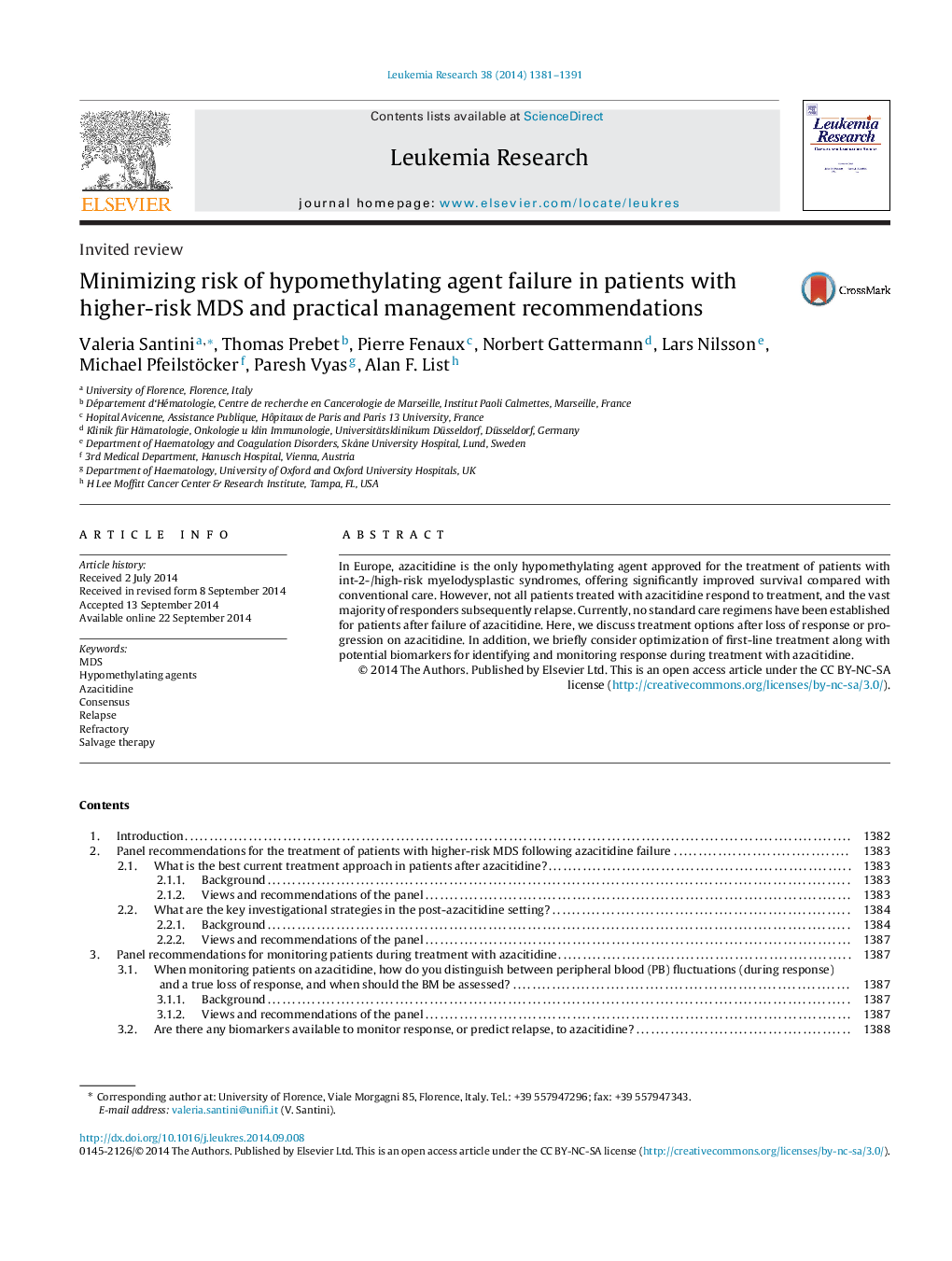| Article ID | Journal | Published Year | Pages | File Type |
|---|---|---|---|---|
| 10908915 | Leukemia Research | 2014 | 11 Pages |
Abstract
In Europe, azacitidine is the only hypomethylating agent approved for the treatment of patients with int-2-/high-risk myelodysplastic syndromes, offering significantly improved survival compared with conventional care. However, not all patients treated with azacitidine respond to treatment, and the vast majority of responders subsequently relapse. Currently, no standard care regimens have been established for patients after failure of azacitidine. Here, we discuss treatment options after loss of response or progression on azacitidine. In addition, we briefly consider optimization of first-line treatment along with potential biomarkers for identifying and monitoring response during treatment with azacitidine.
Related Topics
Life Sciences
Biochemistry, Genetics and Molecular Biology
Cancer Research
Authors
Valeria Santini, Thomas Prebet, Pierre Fenaux, Norbert Gattermann, Lars Nilsson, Michael Pfeilstöcker, Paresh Vyas, Alan F. List,
